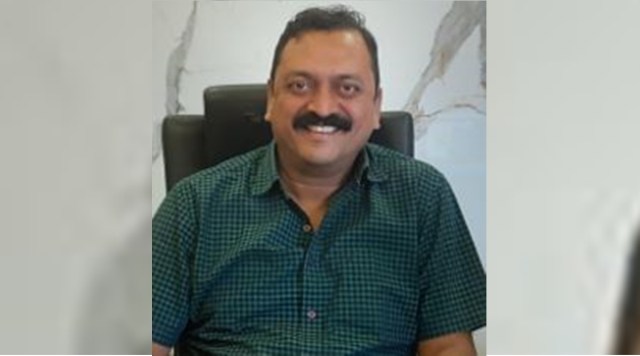Milind Mhaiskar: ‘Expanding NCD care in state: Over 2 cr citizens screened for diabetes’
Maharashtra’s additional chief secretary of the public health department, Milind Mhaiskar, spoke to Rupsa Chakraborty about initiatives by the state that range from strengthening healthcare infrastructure to promoting healthier lifestyles through awareness campaigns and preventive measures for NCDs.
 Milind Mhaiskar, additional chief secretary, public health department
Milind Mhaiskar, additional chief secretary, public health department THE CRITICAL importance of addressing Non-Communicable Diseases (NCDs) in public health was underscored by the Covid-19 pandemic, when diabetes, cardiovascular diseases and respiratory disorders had an impact.
Maharashtra’s additional chief secretary of the public health department, Milind Mhaiskar, spoke to Rupsa Chakraborty about initiatives by the state that range from strengthening healthcare infrastructure to promoting healthier lifestyles through awareness campaigns and preventive measures for NCDs.
What is the department’s strategy to address NCDs in the post-Covid era?
The National Program for Prevention and Control of Cancer, Diabetes, Cardiovascular Diseases, and Strokes (NPCDCS) was initiated in 2010. In Maharashtra, it commenced in 2011 in Wardha and Wasim and expanded statewide. By 2020-21, it encompassed Mumbai and sub-districts. With the rising burden of NCDs, the central government widened the ambit of the programme by including Chronic Obstructive Pulmonary Disease (COPD) and Asthma, Chronic Kidney Disease (CKD), Non-Alcoholic Fatty Liver Disease (NAFLD), Pradhan Mantri National Dialysis Programme (PMNDP). Hence, the NPCDCS is now renamed as NP-NCD.
Can you share details about the state public health department’s population-based screening for diabetes?
We’ve screened over 20 million individuals for diabetes, all aged 30 and above. Those diagnosed are referred to tertiary care facilities. ASHA workers conduct follow-up visits for identified individuals to facilitate behavioural changes, treatment adherence, and encourage regular BP and blood glucose check-ups at Health and Wellness Centers (HWCs). Additionally, counselling and proper referrals are provided for patients in need of medical interventions.
Could you elaborate on the department’s endeavours to address diabetes and hypertension, particularly in rural Maharashtra?
We’ve formulated several strategies to enable early diagnosis and treatment. This involves bolstering and creating community-level platforms such as Village Health Sanitation and Nutrition Committees (VHSNC), Mahila Aarogya Samitis (MAS), Jan Aarogya Samitis (JAS), Self Help Groups (SHG), and local bodies in both rural and urban regions.
These platforms serve as a foundation for community awareness and the promotion of preventive and promotive healthcare activities. Moreover, frontline workers like ASHA and Multiple Purpose Workers/Auxiliary Nurse Midwives will receive training to enhance their capabilities in providing primary, basic diagnostic, and community-level preventive care for NCD-related issues.
With the increased prominence of mental health concerns in the post-pandemic era, how is the public health department enhancing the infrastructure for mental healthcare?
Mental health services are available through the national mental health programme and district mental health programme in all Maharashtra districts. The government-initiated Prerna Prakalp is in place in 14 districts with high farmer suicide rates, conducting door-to-door surveys through ASHA workers. In other districts, surveys are conducted via Public Private Partnerships with Mpower Aditya Birla Education Trust. Tele Mental Health Assistance and Networking Across States (Tele MANAS) operates as a 24×7 tele-mental health service with a toll-free number (14416) in Maharashtra since October 2022, receiving 26,995 calls to date.












